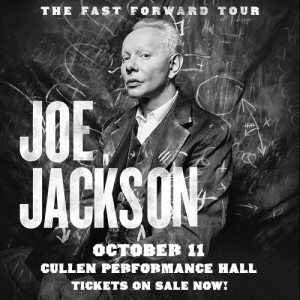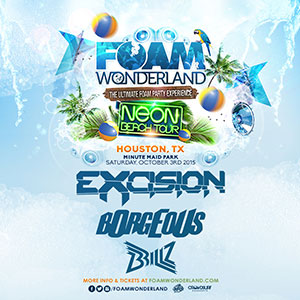Culturally Imposed Power in the National Security State

Eric DeBruin interviews Bob Buzzanco
If you’ve taken history classes at the University of Houston, chances are you’ve heard of Dr. Robert Buzzanco, who’s been teaching at UH since 1995. We sat down to talk about the power of culture and class, which are common themes in his new book, American Power, American People: From the Civil War to the 21st Century.
In your new book you mention two different types of power: class power and culturally imposed power. Can you elaborate on the difference between these two?
Okay, well you have a situation like Ferguson, right, where the police come out, shoot a kid and then you have this militarized police force where one side has guns and the other has their hands up; it’s easy to tell who’s on which side. It’s easy to tell with violence. But that’s actually not the typical means of control. The more common way we are controlled is culturally imposed.
I mean, how often do people go out in the streets? In the case of Michael Brown, he was shot for standing in the middle of the road, but something like that happens everyday and nobody does anything about it. I think we’re just kind of acculturated.
But in that instance, doesn’t the cultural imposition of power rest on the power exercised by the police and the federal government? In other countries where political clashes with the police are more common, when people square off against the police and throw bottles or rocks, they get bottles or rocks thrown back in return. There certainly weren’t any police in Ferguson throwing rocks.
There’s not really a history of violent revolt in the United States. It is there though, and that’s one thing that’s important to understand — people do fight back — and it is within the interests of the ruling class that you not learn that history; that’s why the state is getting rid of AP history. A good example is the Camp Logan riots. The vast majority of my students are H.I.S.D. graduates, and maybe only two per year tell me they’ve even heard of the Camp Logan Riots.
In 1917 the army was segregated and there was a black unit here in Houston. They fought back against police harassment, killed a number of white cops, and in the end, the black soldiers were court martialed and hung in Memorial Park. Nobody has ever heard that story, and that’s huge. Why is that kept away? Why is it hidden in the very city where it happened? Basically, the people who run education, who run the state, don’t want people — whether it be African Americans or poor people — to fight back. And that’s what they did. They were tired of being harassed by the cops and they fought back.
I think that’s the same as the People’s Party II, or the original Black Panther Party in Houston, most people now don’t even know that history.
No, they don’t, and when people do know anything they just know the Panthers killed people or whatever they are told. But the Panthers also ran school lunch programs and pre-school programs and, you know, Orwell said that whoever controls the past controls the present and whoever controls the present controls the future, and if you can convince people to think a certain way, or to deny them a particular history, then you have an advantage there.
When we talk about history now it’s sectioned — Black History, Women’s History — all of which are valuable and important, but when you focus on that and you don’t focus on these larger issues, also, what I would call class issues, then you’re only getting a piece of it. And ultimately, all of this stuff happens in the capitalist society and the strategies the ruling class employs really don’t change that much whether you are black or a woman or a union guy.
The ruling class will go after anyone it has to, and I think that’s what’s important and what I want to get across. I mean, there is clearly discrimination against a host of groups in this country, but at the same time if you get together and find something in common, it is the exclusion from power. There is a very small group of people who have power.
I want to go back to the cultural imposition of power. How did the emergence of the national security state during the Cold War change the expression of cultural power?
Well, that’s incredibly important. It was the inculcation of people with this constant fear, of communism, in this case. There’s an enemy there, and not just abroad. But the idea you create is that national security is the most important responsibility the government could have and you do that by inculcating fear.
And the parallels between what happened then and in the post 9/11 world?
Those guys from the Cold War would not believe the stuff they could get away with now. I mean, can you remember a time in the airport when you didn’t have to go through security? You just walked right in, I can’t even remember if we went through a metal detector.
But now…I drove to Ohio this summer and I can’t tell you how many signs I saw that said, “If you see something suspicious call this number.” That’s the national security state. That fear is an incredibly useful tool for the ruling class; that fear justifies spending public money for “security.” We don’t know the total bill for the wars in Iraq and Afghanistan, trillions, but if you take everything into account after 9/11, I mean TSA and Homeland Security, that’s over ten trillion dollars.
So, we have a seventeen trillion dollar deficit; if you take away all this post-9/11 stuff it’s less than half that, and if you take away the Bush tax cuts it’s nothing. You think that waste, that privatization of public wealth would scare people, but there is an acculturation, a fear that there could be terrorists out there. I don’t mean to downplay what happened, but look at the Ray Rice story, how that dominated an entire week — in that same period of time how many people in Iraq died from bombings? And don’t tell me every single person killed was an Islamic terrorist.
So, what’s the solution? What does history teach us?
People have to start paying attention to history and what is really going on right now, because the guys who have the power have a lot of it, and they are really good at distracting us and getting us to fight each other to keep the heat off themselves. If we don’t pay attention, if we don’t learn the history of struggle and resistance, then we are just going to have more of the same.
by Guest Author















